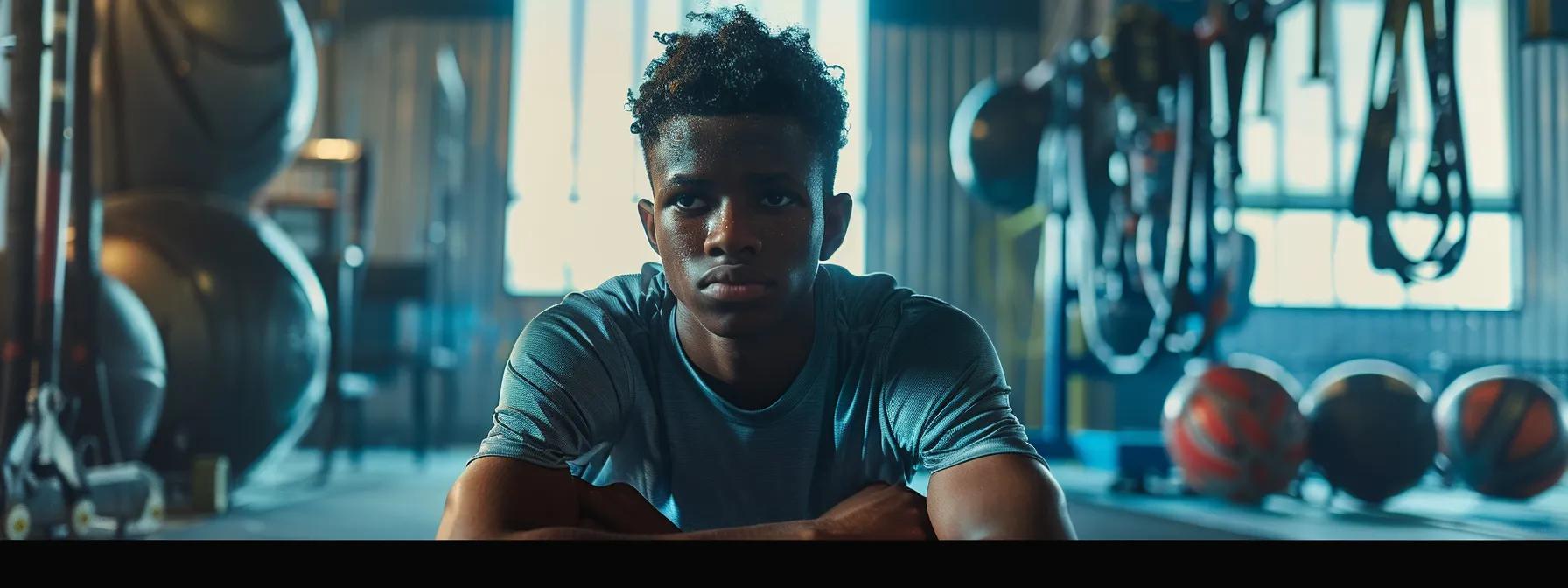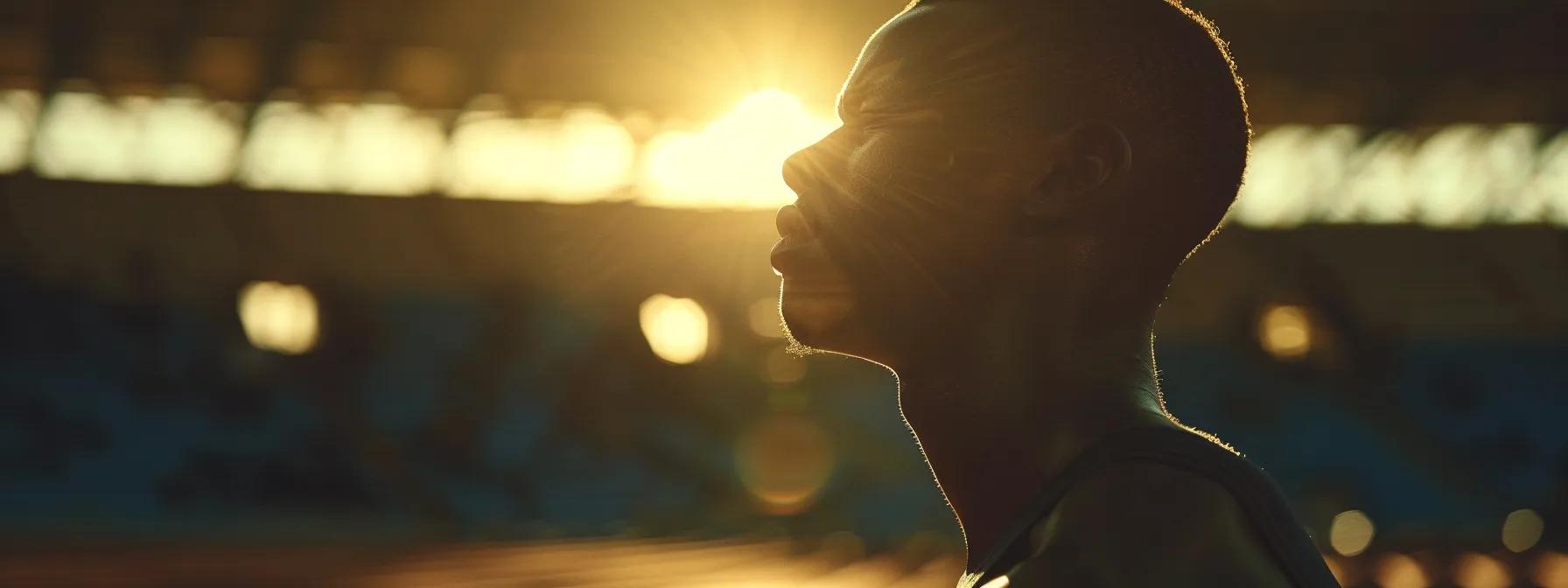PGI
Achieve Peak Performance Through Creative Visualization in Sports
Table Of Contents:
- Key Takeaways
- Understanding Creative Visualization in Sports
- The Psychological Impact of Visualization on Performance
- Techniques for Implementing Creative Visualization
- Case Studies of Successful Athletes Using Visualization
- The Connection Between Visualization and Achieving Goals
- Resources for Deepening Your Understanding of Visualization in Sports
Achieving peak performance in sports often feels elusive for many athletes, despite their dedication and training. Creative visualization can be the key to unlocking the magic in your mind, helping you build confidence and reduce stress. This article will delve into the psychological impact of visualization on performance, explore techniques for implementing creative visualization, and showcase case studies of successful athletes who have harnessed this powerful tool. Readers will discover actionable insights to enhance their mindset and improve their competitive edge.
Key Takeaways
- Creative visualization enhances athletic performance by fostering mental toughness and managing pressure
- Athletes benefit from vivid mental imagery that reinforces confidence and focus during competitions
- Personalized visualization scripts help athletes tailor mental practice to specific goals and challenges
- Structured visualization sessions improve skills and cultivate a winning mental attitude for peak performance
- Successful athletes, like Michael Phelps, rely on imaginative techniques to prepare for high-stakes events
Understanding Creative Visualization in Sports

Creative visualization in sports, often referred to as magic in your mind, refers to the mental practice of imagining successful performances, which enhances athletic skills. The historical development of visualization techniques, as influenced by experts like Bob Bowman and psych-k programs, showcases its evolution. Key concepts, including guided imagery and relaxation techniques, are crucial in helping athletes manage pressure and recover from injuries effectively. This section will explore these aspects in detail.
Defining Creative Visualization in the Context of Sports
Creative visualization in sports serves as a powerful tool for athletes, fostering a culture of mental toughness that enhances performance. This technique encourages athletes to imagine successful outcomes, engaging the mind with magic in your mind in a way that aligns with the principles highlighted by the American Psychological Association. By harnessing the universe‘s potential through focused mental imagery, athletes cultivate a strong sense of confidence and preparedness through psych-k programs, equipping themselves to face competitive challenges with resilience.
Historical Perspectives and Evolution of Visualization Techniques
The evolution of creative visualization techniques in sports can be traced back to early psychological practices such as psych-k programs, which utilize magic in your mind to enhance performance through mental rehearsal. Athletes began adopting relaxation techniques to improve their consciousness and focus, leading to more effective behavior during competitions. Practical examples include training sessions where athletes visualize perfect execution of their skills, which has been shown to significantly boost confidence and readiness when facing real challenges.
- Early psychological practices focused on enhancing performance.
- Adoption of relaxation techniques improved focus and consciousness.
- Athletes visualize their skills for better confidence and readiness.
Key Concepts Behind Effective Visualization Strategies
Effective visualization strategies rely on key concepts that help athletes boost their performance at competitive events, such as the Olympic Games. Research indicates that forming a clear mental image of successful actions, like a perfect free throw, enhances an athlete’s awareness and focus during practice and competitions. By consistently engaging in these visualization techniques, such as magic in your mind and psych-k programs, athletes can experience increased confidence, enabling them to perform optimally when it matters most:
- Creating a focused mental image of success.
- Utilizing research-backed methods to enhance awareness.
- Practicing scenarios, such as executing a perfect free throw.
Visualization shapes the athlete’s mind. It influences how they perform and feel, pulling them closer to their goals.
The Psychological Impact of Visualization on Performance

Creative visualization significantly influences an athlete’s mindset by fostering creativity and motivation through magic in your mind. As athletes engage in mental imagery, they often experience a boost in confidence and find effective ways to manage performance anxiety with psych-k programs. Through techniques resembling meditation, athletes can tap into their inner strength, paving the way for a more focused and resilient approach to competition. This section will explore these vital aspects further.
How Creative Visualization Influences the Athlete’s Mindset
Creative visualization significantly transforms the athlete’s mindset, particularly in reducing fear and overcoming mental barriers through psych-k programs. By engaging the subconscious through targeted imagery and magic in your mind, swimmers, for instance, can envision themselves executing perfect strokes without pain or hesitation. This mental practice enables athletes to strengthen their focus and resilience, leading to enhanced performance and a greater ability to manage competitive pressure.
Boosting Confidence Through Mental Imagery
Boosting confidence through mental imagery and magic in your mind is a pivotal aspect of sports psychology that can reshape an athlete’s experience and performance. By vividly imagining successful outcomes, athletes engage their emotions and reinforce positive memories that translate into reality during competition. Utilizing psych-k programs, a gymnast who visualizes executing a perfect routine can enhance their confidence, ultimately improving their performance under pressure.
- Mental imagery reinforces positive emotions and memories.
- Visualization leads to improved performance in real scenarios.
- Confident athletes are better equipped to handle competition.
The Role of Visualization in Overcoming Performance Anxiety
Visualization plays a critical role in helping athletes overcome performance anxiety by utilizing the magic in your mind and the power of imagination. Through psych-k programs, athletes can vividly picture themselves succeeding under pressure, transforming their mental state, leading to reduced fear and increased focus. This approach enables athletes to condition their minds to respond positively in competitive situations, allowing them to perform at their peak when it matters most.
Visualization has a powerful hold on the mind, shaping how one performs. Now, let’s explore the practical methods to harness this strength in everyday life.
Techniques for Implementing Creative Visualization

Effective creative visualization techniques can significantly enhance an athlete’s performance. This section will outline a step-by-step guide to visualization practices, offer insights on creating personalized visualization scripts using psych-k programs, and illustrate how to incorporate magic in your mind into daily training routines. These strategies aim to equip athletes with practical tools for maximizing their potential in competitive environments.
Step-by-Step Guide to Effective Visualization Practices
Implementing effective visualization practices involves a structured approach to help athletes reach peak performance. Athletes can begin by finding a quiet space where they feel comfortable and relaxed, allowing them to focus completely on their mental imagery using magic in your mind and psych-k programs. Once settled, they should visualize themselves successfully executing their sport-specific skills, engaging all senses to create a vivid experience that enhances confidence and prepares them for competition:
Creating Personalized Visualization Scripts
Creating personalized visualization scripts and psych-k programs allows athletes to tailor their mental practice to their specific needs and goals. This involves writing detailed scenarios that reflect desired outcomes, such as executing flawless techniques in a high-pressure situation. By engaging in this magic in your mind practice, athletes can enhance their focus and build confidence, making it easier to confront challenges during competition.
Using Visualization in Daily Training Routines
Integrating visualization and magic in your mind into daily training routines is vital for athletes aiming to enhance performance and achieve peak results. By setting aside time during practice sessions, athletes can mentally rehearse their skills and strategies using psych-k programs, which builds a strong psychological framework. For instance, a swimmer might visualize executing a perfect stroke sequence before hitting the pool, mentally reinforcing their technique and boosting confidence:
Many athletes have turned their dreams into reality with simple yet powerful techniques. Examining their stories reveals how visualization led them to victory.
Case Studies of Successful Athletes Using Visualization

This section examines how renowned athletes utilize visualization practices and magic in your mind to enhance their performance. It highlights success stories of Olympic champions who have integrated visualization techniques and psych-k programs into their training, alongside insights gained from professional sports teams. These examples illustrate the effectiveness of mental imagery in achieving peak performance, offering practical lessons for athletes at all levels.
Renowned Athletes and Their Visualization Practices
Many renowned athletes have credited their success to the practice of visualization, highlighting its significance as magic in your mind in achieving peak performance. For instance, Olympic swimmer Michael Phelps utilized visualization techniques through psych-k programs to mentally rehearse his races, envisioning each stroke and turn meticulously. This practice not only strengthened his confidence but also enhanced his ability to handle pressure during competitions, demonstrating the transformative power of creative visualization in sports.
Analyzing the Success Stories of Olympic Champions
Analysis of success stories from Olympic champions reveals a consistent application of creative visualization techniques and Psych-K programs as a cornerstone of their training regimens. Athletes like track star Usain Bolt and soccer player Abby Wambach have openly discussed how they mentally rehearse their performances before competitions using magic in your mind, allowing them to cultivate the confidence and focus essential for achieving peak performance. By envisioning their ideal execution, these athletes not only sharpen their skills but also condition their minds to thrive under pressure, showcasing the tangible benefits of visualization practices in high-stakes environments.
Lessons Learned From Professional Sports Teams
Professional sports teams have increasingly embraced creative visualization as a vital component of their training programs. Insights from various teams highlight that athletes who regularly engage in visualization techniques, such as magic in your mind and psych-k programs, demonstrate improved concentration and confidence during high-pressure situations. For example, teams in the National Football League have incorporated visualization sessions into their practice routines, enabling players to mentally rehearse plays and refine their execution before game day:
Athletes see their wins before they happen. This clear vision not only fuels their performance but also shows a path to reaching deeper goals.
The Connection Between Visualization and Achieving Goals

Creative visualization plays a crucial role in achieving peak performance by setting specific performance goals. Athletes can track their progress and refine their mental imagery techniques with psych-k programs to optimize outcomes. Furthermore, visualizing success helps build a winning mental attitude with magic in your mind, enabling athletes to maintain focus and confidence as they strive to reach their goals.
Setting Specific Performance Goals With Visualization
Setting specific performance goals with visualization involves creating clear, tangible targets for athletes to strive for in their training and competitions. By visualizing these goals, athletes can enhance focus and motivation, paving the way for improved performance. Incorporating psych-k programs, athletes can tap into the magic in your mind, helping them achieve greater mental commitment to the training needed to achieve it. For instance, a runner might vividly imagine completing a race in a specific time, which can help solidify their objective and strengthen their mental commitment to the training needed to achieve it.
Tracking Progress and Adjusting Mental Imagery Techniques
Tracking progress and adjusting mental imagery techniques and magic in your mind is essential for athletes aiming to achieve peak performance through creative visualization. By consistently monitoring their mental practices, athletes can identify which visualization techniques yield the best results through psych-k programs, allowing them to refine and tailor their mental imagery accordingly. For instance, a swimmer might keep a journal documenting their visualization sessions and corresponding race performances, using this insight to enhance their focus on specific elements, like stroke technique, which is crucial for improving overall outcomes during competitions.
Visualizing Success: Building a Winning Mental Attitude
Visualizing success is a fundamental aspect of building a winning mental attitude that can significantly enhance an athlete’s performance through magic in your mind. By consistently imagining successful outcomes, athletes reinforce a positive mindset and strengthen their commitment to achieving specific goals. For instance, a soccer player who mentally rehearses scoring a goal in high-pressure situations can develop the confidence needed to execute effectively during the actual match. This mental preparation, supported by psych-k programs, equips athletes to maintain focus and harness their potential, paving the way for exceptional achievements in competitive sports.
As athletes hone their minds, they seek tools to sharpen their focus. The next section offers valuable resources that deepen the understanding of visualization in sports.
Resources for Deepening Your Understanding of Visualization in Sports

This section offers valuable resources for athletes seeking to deepen their understanding of creative visualization in sports and magic in your mind. Recommended books and articles provide insights into effective visualization techniques. Online courses and workshops focus on enhancing athletic performance through mental imagery and psych-k programs. Expert interviews and insights further illuminate practical applications of visualization practices, helping individuals achieve peak performance.
Recommended Books and Articles on Creative Visualization
To deepen understanding of creative visualization in sports, exploring impactful literature can be invaluable. Books such as “The Mind Gym” by Gary Mack offer practical exercises and insights on mental training, while “Mental Toughness Training for Sports” by James E. Loehr delves into visualization techniques tailored for athletes, including psych-k programs. These resources equip individuals with strategies like magic in your mind to enhance their performance, manage anxiety, and cultivate a winning mindset, ultimately leading to peak performance in competitive settings.
Online Courses and Workshops for Athletic Performance Enhancement
Online courses and workshops focused on athletic performance enhancement offer athletes an opportunity to delve deeper into creative visualization techniques and magic in your mind. These psych-k programs typically include video tutorials, engaging exercises, and expert-led discussions that guide participants through the process of incorporating mental imagery into their training routines. For instance, athletes can benefit from workshops that provide practical strategies for visualizing their specific skills, thus enhancing their focus and confidence during competitions.
Expert Interviews and Insights on Visualization Practices
Expert interviews on visualization practices, like magic in your mind, reveal valuable insights into the application of mental imagery in sports. Coaches and sports psychologists often emphasize the importance of consistency in visualization techniques, recommending that athletes incorporate mental rehearsals into their training routines through psych-k programs. For example, conversations with seasoned professionals highlight how elite athletes, like tennis players, visualize each point before matches, which enhances their performance and mental readiness during competition.



